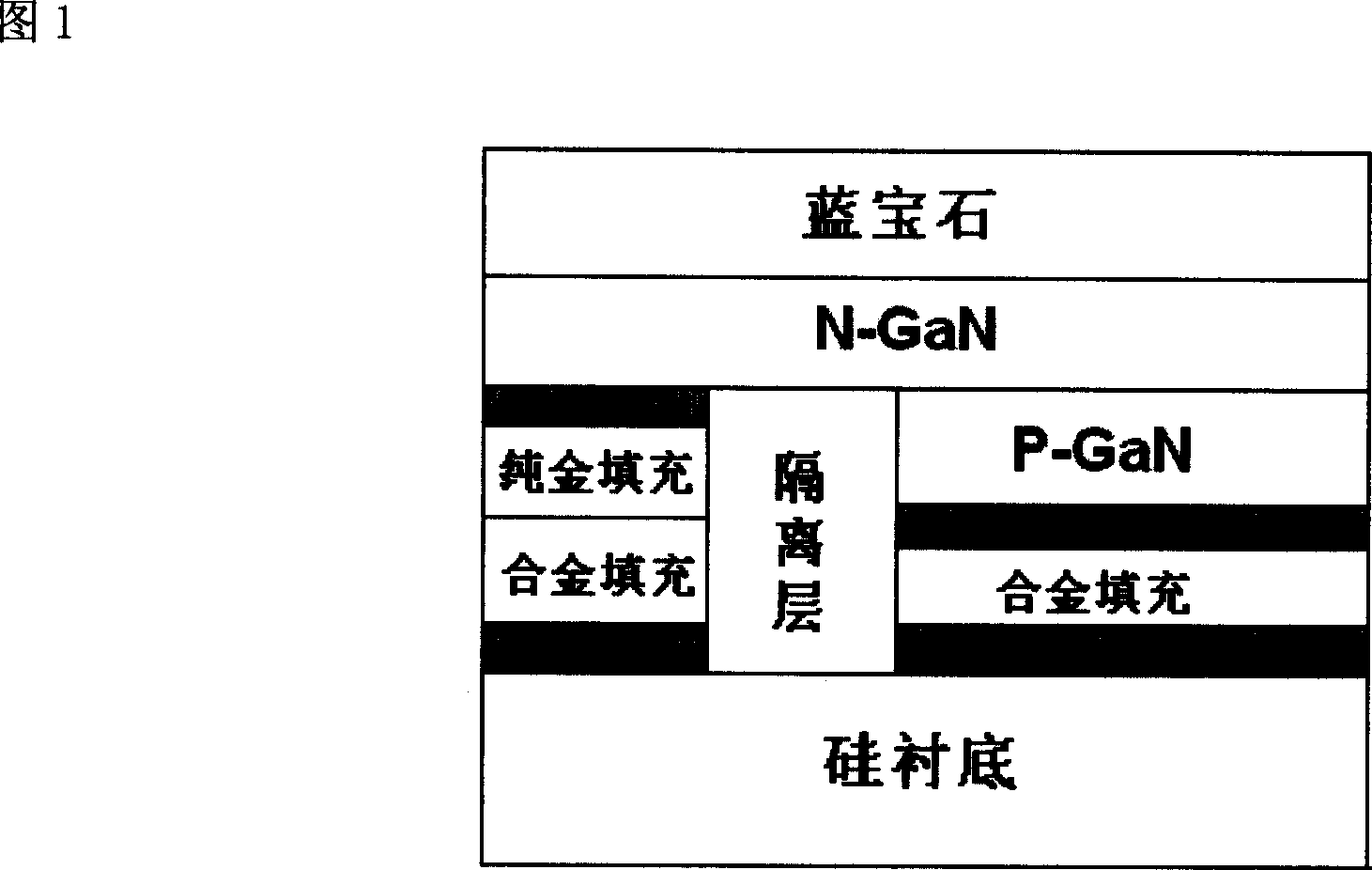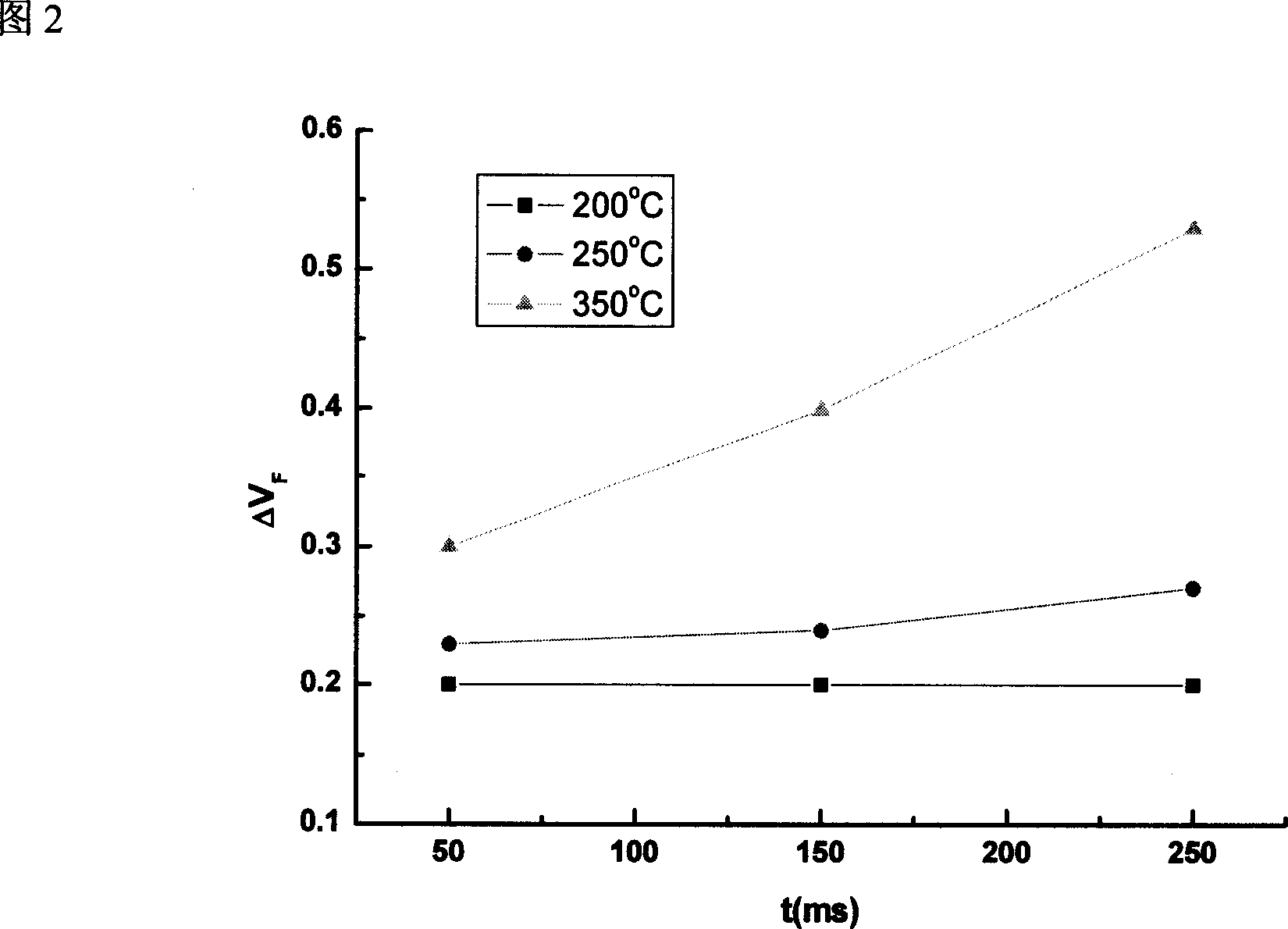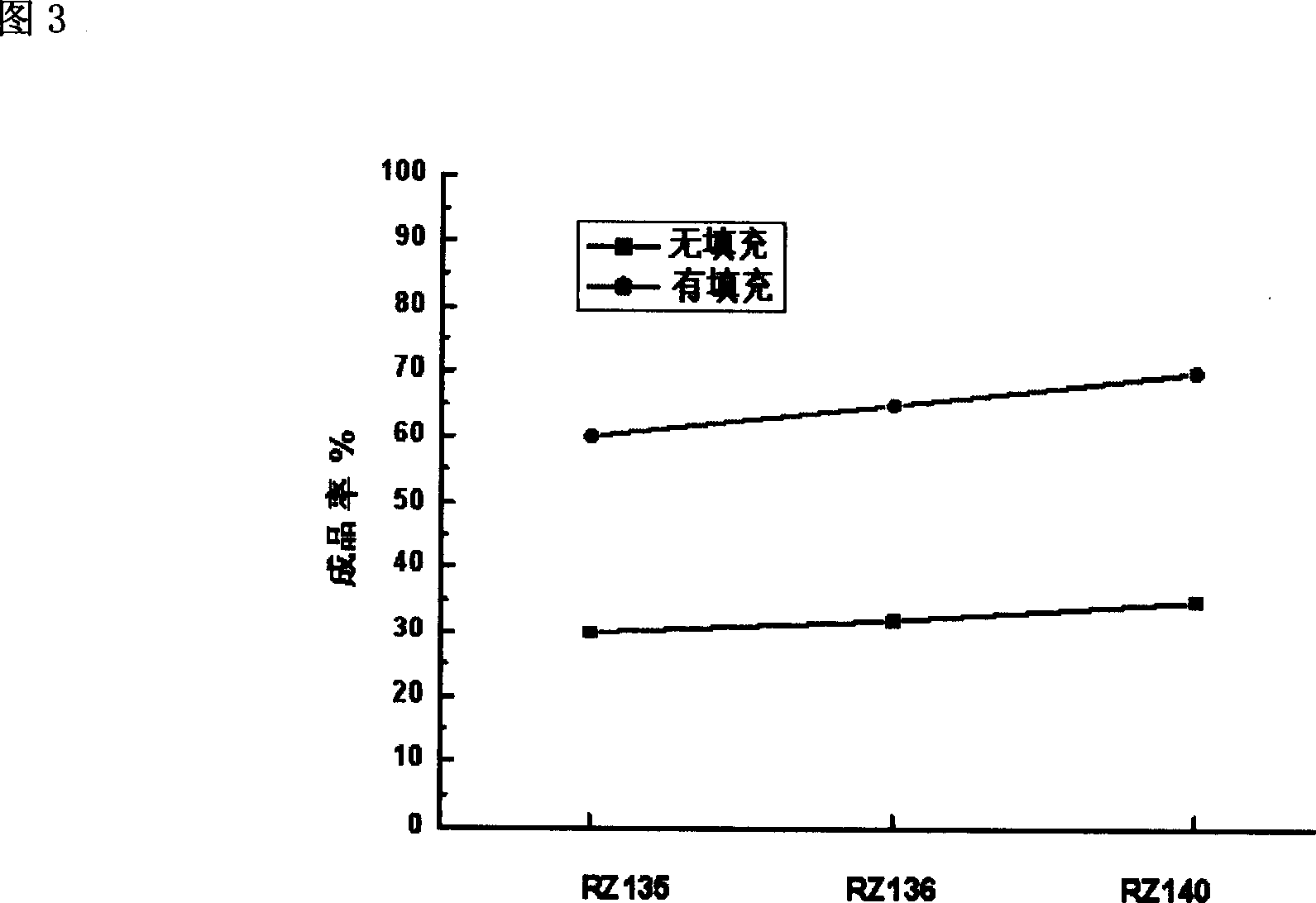Process for reversing pure-golden Au alloy bonding LED
A technology of alloy bonding and pure gold, which is applied in the direction of electrical components, circuits, semiconductor devices, etc., can solve the problems of reduced light output efficiency, reduced reliability, and high junction temperature of devices, so as to improve stability and yield, and optimize heat dissipation , Improve the effect of stability and yield
- Summary
- Abstract
- Description
- Claims
- Application Information
AI Technical Summary
Problems solved by technology
Method used
Image
Examples
preparation example Construction
[0034] In order to prepare the above-mentioned pure gold Au alloy bonded LED flip chip, the preparation method of the present invention comprises the following steps:
[0035] First, use MOCVD (metal organic chemical vapor deposition) equipment to epitaxially grow GaN-based high-power LED structure epitaxial wafers, and the substrate is sapphire (Al 3 o 2 ). Then etch the steps of the N surface and the scribe line of the chip size to expose the N-GaN mesa, so as to be used as the N electrode and the welding pad. The N-type mesa is etched by reactive ion etching equipment RIE, and the reaction gas is Cl:Ar=10:3.
[0036] Using ICP (Coupled Plasma Etching) or RIE (Reactive Ion Etching) equipment to dry-etch the P-GaN layer and the light-emitting layer with chlorine ions and argon ions, and make the P-GaN layer and the light-emitting layer The underlying N-GaN layer forms the electrical contact and is etched with photoresist or SiO 2 Make a mask.
[0037] Afterwards, a layer...
Embodiment 1
[0042] Embodiment 1, adjust the welding temperature and time.
[0043] The process parameters for welding the LED chip and the silicon substrate together are as follows:
[0044] The heating and bonding temperature is controlled at 200°C to 350°C, and the welding time is adjusted within a range of 50ms to 250ms. From Figure 2, it can be seen that under the premise that the welding temperature parameters remain unchanged, the grain V measured by adjusting the welding time F (Forward voltage) difference between each other ΔV F . Among them, when the soldering temperature is 200°C, the difference ΔV F Only 0.2V. When the soldering temperature increases, the difference ΔV F increase, and when the welding temperature is higher, at 350°C, the difference ΔV F It increases significantly with the increase of welding time.
[0045] FIG. 3 is a comparison of the yield of the flip chip of the invented technology (with filling) and the flip chip of the prior art (without filling). ...
PUM
| Property | Measurement | Unit |
|---|---|---|
| thickness | aaaaa | aaaaa |
| thickness | aaaaa | aaaaa |
Abstract
Description
Claims
Application Information
 Login to View More
Login to View More - R&D
- Intellectual Property
- Life Sciences
- Materials
- Tech Scout
- Unparalleled Data Quality
- Higher Quality Content
- 60% Fewer Hallucinations
Browse by: Latest US Patents, China's latest patents, Technical Efficacy Thesaurus, Application Domain, Technology Topic, Popular Technical Reports.
© 2025 PatSnap. All rights reserved.Legal|Privacy policy|Modern Slavery Act Transparency Statement|Sitemap|About US| Contact US: help@patsnap.com



